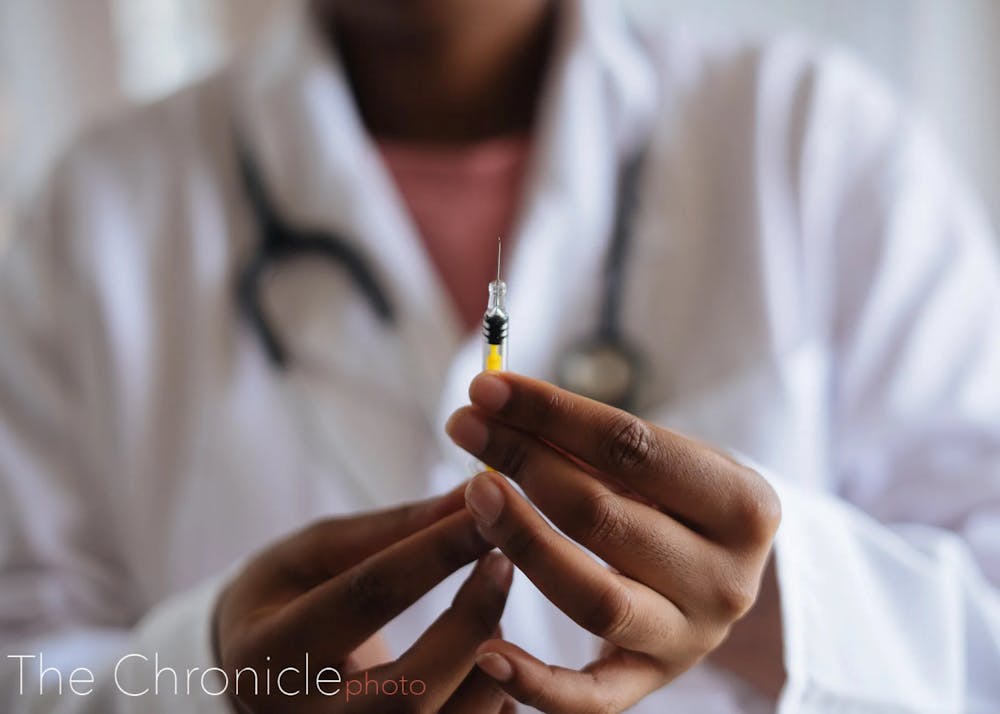Duke Health research initiatives have found that worldwide vaccine distribution must become more equitable to bring an end to the COVID-19 pandemic.
The COVID Global Accountability Platform (COVID GAP), a Duke University and COVID Collaborative joint research effort, has conducted over a year of research and policy analysis to better understand the ways in which the health sector can respond to pandemics like COVID-19.
“Beyond the science and beyond the technical research, it's becoming more and more clear that there's a lack of transparency and accountability as one of the key drivers of [the] response that hasn't been adequate so far,” said Krishna Udayakumar, head of global innovation for Duke Health and founding director of COVID GAP.
The past two weeks have seen the discovery of the Omicron variant of SARS-CoV-2, the virus that causes COVID-19—as of Friday, 43 Omicron cases had been reported in the United States. According to Udayakumar, this cycle of mutations will continue unless the worldwide vaccine rollout changes.
“As we leave large parts of the world at risk for infections, we are not safe in the U.S.,” Udayakumar said.
Increasing vaccine rates worldwide should stifle the continuing transmission and mutation of the vaccine, and COVID GAP looks to develop a global model that will facilitate unilateral success in vaccine rollout.
“[The model] serves as an external accountability mechanism that increases the ability of public and private sector leaders to do what’s needed moving forward,” Udayakumar said.
COVID GAP has partnered with the COVAX Initiative of the World Health Organization and other international health organizations to promote the goals of equity in vaccine distribution. They also work directly with the U.S. government to create policies to better increase the efficacy of vaccine exportation.
The research of COVID GAP looks at all aspects of vaccine distribution from creation to injection. They soon intend to bring together 60 to 70 of the world's experts to discuss “figuring out how to most effectively address the bottlenecks of getting vaccines from airports to arms,” Udayakumar said.
Within the Duke Health system, the COVID GAP initiative uses its research resources from the Duke-Margolis Center for Health Policy, Duke Global Health Institute and Duke Global Health Innovation Center to bolster its findings and disseminate the research across a large scope of multinational organizations.
“I think an initiative like this is only feasible to do because we’ve got such a tremendous breadth of expertise,” Udayakumar said.
Udayakumar stressed the importance of broadening the scope of view for the pandemic, noting that the spreading of the virus in any part of the world is a threat to the rest of the world. This world-shrinking effect could not be any more palpable, as the Omicron variant found itself in the U.S. less than a week after it was identified.
While active research is not usually disclosed, the goals of the research are clear. “We are thinking about the mechanism by which we can make the global response more equitable,” Udayakumar said.
From considering a disenfranchised nation’s logistics in moving vaccines to underdeveloped regions to motivating members of the public to get vaccinated, the COVID GAP initiative aims at providing answers to the questions that prevent the pandemic from coming to an end.
“Not only is a stronger and more equitable global response the right thing to do; it also keeps us safer,” Udayakumar said.
Get The Chronicle straight to your inbox
Signup for our weekly newsletter. Cancel at any time.
James Cruikshank is a Trinity first-year and a staff reporter for the news department.

